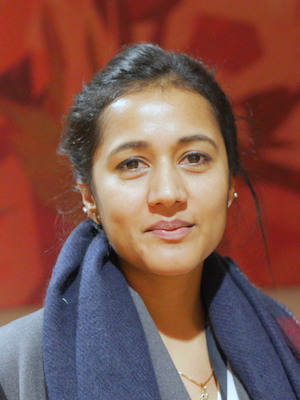Key skills to know before mentoring
Posted on 9 October 2020
Key skills to know before mentoring
 Photo by NESA by Makers on Unsplash
Photo by NESA by Makers on Unsplash
By Open Life Science mentors Andrew Stewart, Arielle Bennett, Mallory Freeberg, Malvika Sharan, Meag Doherty, Samuel Guay and Yo Yehudi.
The Open Life Science program recently launched its second cohort (OLS-2) of open science skills training. One of the program’s goals is to guide open science enthusiasts in developing the practical community-building and interpersonal skills essential to effective project leadership. As part of this, the cohort kicked off with a mentoring and coaching workshop provided by 360 Training UK for the thirty-six volunteer mentors who are guiding cohort participants through their open science journey. Training workshops ran via Zoom across multiple time zones to accommodate the mentors spread all around the world.
Mentors on the Open Life Science Programme come to the programme with different experiences of mentoring and managing other people. Mentor training helps both mentors and mentees get the most out of the relationship by offering a space for mentors to think more deeply about their role and start to build a scaffold for their mentoring sessions. Here are some of the key takeaways and drivers from the training sessions:
Roles of mentor vs. coach vs. manager
Mentors usually have some experience in a given subject area, coaches may not - but both help to guide others. Similarly, there’s a difference between managing and mentoring: in a mentorship goals and progress evaluation need to be driven by the mentee, whereas in a management relationship it’s often the manager that sets goals and evaluates progress.
Different types of mentoring
It is essential to understand where one fits as a mentor in the whole picture of mentorship. A mentee may have several mentors for different kinds of support, for example, career advancement, skill development, learning from a role model, troubleshooting a specific issue or team building. The types of mentorship may also vary, such as a 1:1 mentorship, multiple mentors for one mentee, one mentor for multiple members in a team, peer mentoring, a junior member of staff mentoring more senior ones and vice versa - it’s about providing different perspectives. Defining the “mentoring type” will help guide how to approach a successful relationship with the mentee. The set of skills and meeting format leading to an effective mentorship will differ depending on the types of mentoring.
The critical skills and mindset of a mentor
Mentors should look beyond “trying to help” towards “helping mentees build confidence and competence to help themselves” - the focus should be on empowerment and not solutionism. Mentors may want to reflect on their own experiences of being a mentee; thinking about what they found useful and how they put into practice advice and suggestions given to them. A successful relationship is one with a lasting positive impact in which the mentor helps equip the mentee with tools that they can apply in future contexts. Mentor-mentee relationships may not always develop organically, therefore it’s important to focus on what your conversation with them brings to the table. Ask open-ended questions to allow mentees to explore their current challenges and successes.
The value of storytelling
A surprising lesson about mentoring is that the ability to tell a story is very valuable and a key competency of mentoring. Stories of experiences provide a way for mentees to translate what mentors say into their own worldview. Mentors can also benefit from thinking about and sharing their stories as it is a chance for them to reflect on their own strengths and the value they bring to the mentor-mentee relationship.
Mentors are people too
Another surprising but reassuring lesson was learning how many people who are mentors feel like imposters and feel underprepared! Similarly, mentors do not need to know everything. Mentors can have expertise or life experiences in an area related to the mentee’s work, and can further support mentees by connecting them with experts in specific fields.
Mentors are active listeners
Active listening is an extremely important skill, but it can be a hard one to master, particularly online. Asking open questions is extremely important for facilitating discussions, exploring issues/problems, and guiding mentees through problem-solving thought processes. In the training, we practised critical skills such as active listening and open-ended questions in breakout sessions.
Allowing mentees to take accountability for their work
It is crucial for both mentor and mentee to define expectations and also understand what their relationship is not. A mentor is not an additional member of their mentee’s team. If their mentee feels stuck or that they are not making progress, mentors can help them explore their situation, guide them to understand their strengths and weaknesses, and let them drive their performance. Mentees are, after all, accountable for their own work.
Troubleshooting mentor/mentee relationships
Mentors sometimes also face challenges such as disengagement, lack of time to prepare for their meetings, becoming too involved with their mentee’s work, or not being able to ask the right questions that could help mentees get the most out of their conversations. To mitigate these situations, meetings should have some measure to assess mentoring effectiveness and identify the next steps in the right direction. For example, in Open Life Science there are assignments for each week, which could help identify whether the mentees are making any progress in their understanding of Open Science skills or the questions to ask to get the conversation going.
A mentor in a new mentor/mentee relationship should:
- Reflect on different aspects of your own experiences.
- Ask yourself: what do you have to bring as a mentor?
- What is your story?
- Meet mentees where they are in the process.
- Ask your mentees “What does success look like to you?”
- Clarify when you don’t fully understand what they’re trying to convey.
- Define what the relationship is.
- How long and how frequently you can meet with your mentee.
- What expertise and advice you can offer.
- What the goals are that you can guide your mentee to achieving.
- Define what the relationship isn’t.
- It’s not your job to work on the project.
- You’re not a late-night/anytime available saviour or agony aunt.
- You don’t have all the answers to your mentee’s questions.
- You are not their manager.
Conclusion
When entering a mentor/mentee relationship as a mentor, make sure to plan it out. Define the outcome/goal for the relationship (as well as its duration), explore options to gain new understanding, and make plans for the actions you and your mentee will be taking in the future. Developing as a mentor is a journey as much as being a mentee is - it takes time to build relationships, know the worth of your own experiences and stories, learn to ask the right questions, and manage your involvement in projects you’re mentoring.



